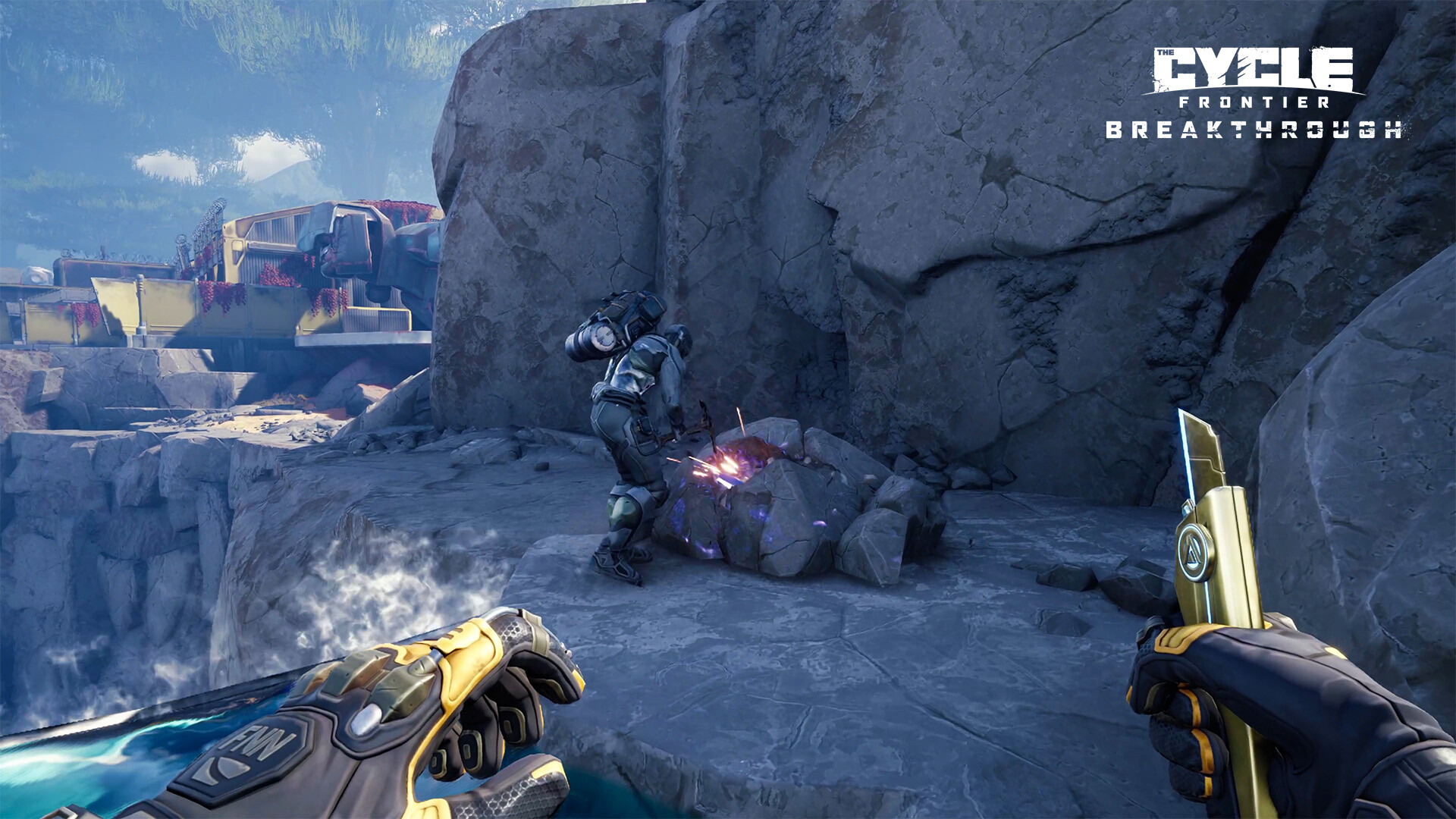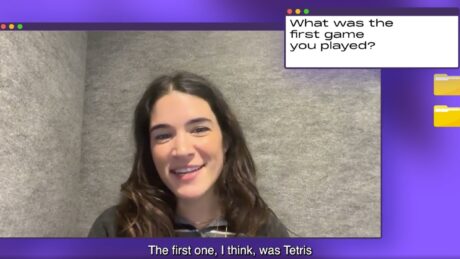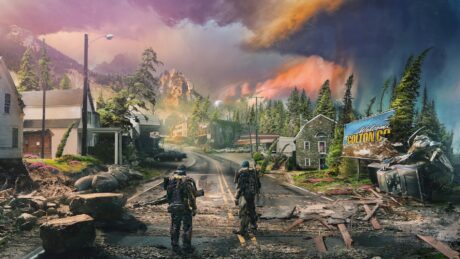As a studio known for its strong narrative roots in gameplay, YAGER has always placed a significant emphasis on storytelling in its games. It’s abundantly clear why Spec Ops: The Line resonated heavily with players, with its portrayal of the horrors of war a strong message to send. But with The Cycle: Frontier, the team is taking on another storytelling challenge, this time with the players taking on a bigger role.
“We basically started with the idea of making a game about social emergent gameplay. So you have a plan, you drop down to the surface, and then something happens, and it changes your plan; it’s something you didn’t, maybe expect,” said Jonathan Lindsay, Executive Producer of The Cycle: Frontier.
“That’s something that we really wanted to achieve, that it’s not just really compelling to play, let’s be dramatic, but also to watch, we call it tense uncertainty, I guess any good suspense movie or a thriller is really about this. For that to happen. You just need enough variables in your game. And it needs to be unpredictable. And it needs to be a certain amount of predictability. So you can make a plan. But then, you know, it needs to be able to go awry.”
And things going awry in The Cycle: Frontier is what makes the game infinitely replayable in every match. Prospectors could be scavaging resources before being stumbled upon by another player, resulting in a PvP encounter. On another occasion, the newcomer might turn out to be the helping hand needed to take down a boss. The possibilities are out there for players to find and experience.
What has not changed is the YAGER experience, which Lindsay described as “always been about shooting,” this time delivered in a package of “social emergent gameplay” that is “jam-packed with drama” and “high stakes,” this is the immediate direction of a studio that is looking to make a mark in the genre with The Cycle: Frontier.

“We are a smaller studio, and we looked at ourselves as someone who can fill a niche where it’s not, you know, a huge, huge, huge AAA game production with 1000 people, 500 people. And I think we’ve got a lot of really amazing talent as well that makes that possible. But for us, it’s been more about looking at niches that are maybe not fully exploited yet, where there is maybe a bit more creative risk. And as we are generally a smaller production, we can try to take the opportunities. I think YAGER sees itself as a studio that wants to innovate,” said Lindsay.
The partnership with Tencent has certainly helped, allowing the developers “to take the right amount of risk” while also connecting YAGER with other studios under the umbrella for shared knowledge in the multiplayer shooter space. It is still early days for The Cycle: Frontier, but the pedigree of the folks at YAGER points towards a bright future not just on Fortuna III, but for everyone working on the game as well.


